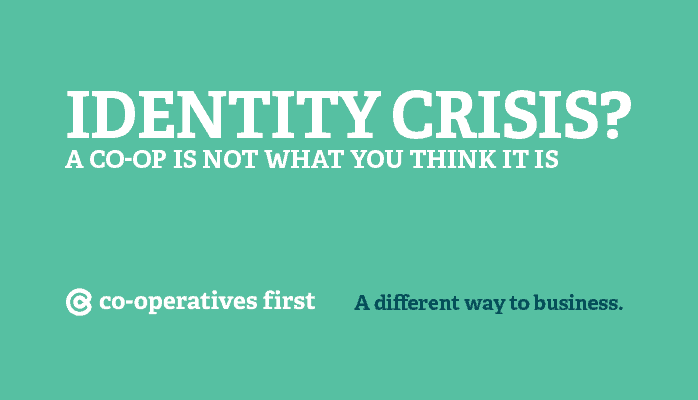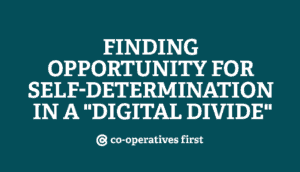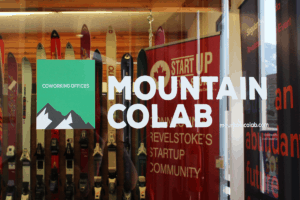In Canada, co-operative businesses are legally defined by incorporation under provincial or federal legislation. But we think that a “co-op” definition is a lot more than just a legal designation. Just because an organization is registered as a co-operative doesn’t mean it’s especially ‘co-opy.’ And there are great examples of organizations that are pretty darn ‘co-opy’ without being incorporated specifically as “co-operatives.”
Defining a co-op: What exactly makes up a co-op?
Is it a “community-owned” thing? Not really. While often linked to the business model, and no doubt co-ops are owned by members of a community, they are generally not exactly “community-owned.” KPMG, for example, is a co-operative, but not too many communities will want to lay claim to owning that business.
Likewise, there are great examples of “community-owned” organizations that aren’t co-ops. Take Abbeyfield Senior Housing, for example. Structured like a community service co-op, they have a democratic structure, member-focus and are community-owned. Similarly, the Green Bay Packers and the Saskatchewan Roughriders are structured like multi-stakeholder non-profit co-operatives, have a broad democratic structure and are community-owned; however, because of legislation and some other complications, these impressively broad-based and successful community-owned organizations are not legally co-operatives. (Although, they do feel pretty darn ‘co-opy.’)
Is it a shareholder thing? Yes and no. In most western provinces, except for Saskatchewan, you need 3 or more people to incorporate as a co-operative. A corporation generally requires 1 or more. Not much of a difference, but a difference nonetheless.
Is it a profit-distribution thing? Not necessarily. While we like to promote the strength of the broad profit distribution structure that many co-operatives reflect, it’s certainly possible to create a business based on the co-operative model that is decidedly profit-driven and shareholder-focused.
Is it an ideological thing? Sometimes. But that’s a poor reason to avoid or start a co-operative business. A business model should generally be chosen based on the business case it makes for the specific opportunity a group is attempting to capitalize on.
Is it a democratic thing? Kinda. While this is often touted as a particularly ‘co-opy’ thing, there are strong examples of co-operative businesses that have a clear hierarchy in share structure and variant influence on decision-making. Plus, many non-profits use a fairly democratic membership structure, but are not co-ops.
Is it a board thing? Perhaps, but not definitively so. The co-operative business model delivers a great governance and succession platform. But good governance is dependent on the foresight of the founders and quality of the directors that make up the board ongoing. Plus, an investor-driven or non-profit corporation have equal opportunity for presenting good governance through their board of directors.
See where the whole “co-op definition” thing gets messy?
So, what is it that makes a co-op, a co-op?
It’s attitude. Pride. A desire for independence. A love of place and family. And most importantly a willingness to work together with a (usually small) group of like-minded individuals hoping to seize an opportunity or solve a problem. A co-op is a group of people telling government or big business, ‘don’t worry about it, we got this.’
Actually, that’s not it either. (Even though these are the ones we like best!) A working co-op definition involves a way of formalizing a relationship between a group of people – it doesn’t care much about the legal name bit. The relationship can be a large partnership between governments, a federation of individual businesses, an association of legal entities, whether individuals or groups, a small business of three founding members, a non-profit community garden or anything the human imagination can dream up and that a group wants to achieve together. Done right, it provides transparency and fairness, and offers clear decision-making, agility in capital financing and opportunity for good succession planning. Misplaced, it can do some harm and fail.
So, what can we say is a co-op definition? In short, it’s you.
If you’re thinking about creating a co-op, we can help with community meetings, ideation or simply provide the tools and resources for you to do it yourselves. Contact us.

 Written by
Written by 






